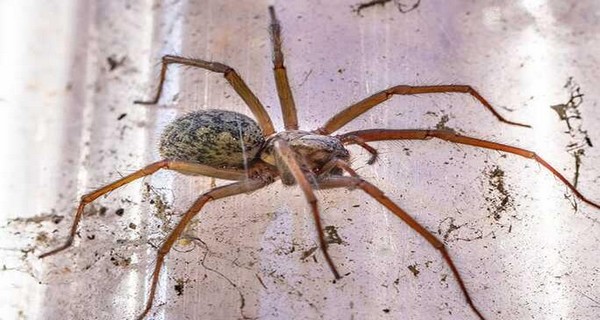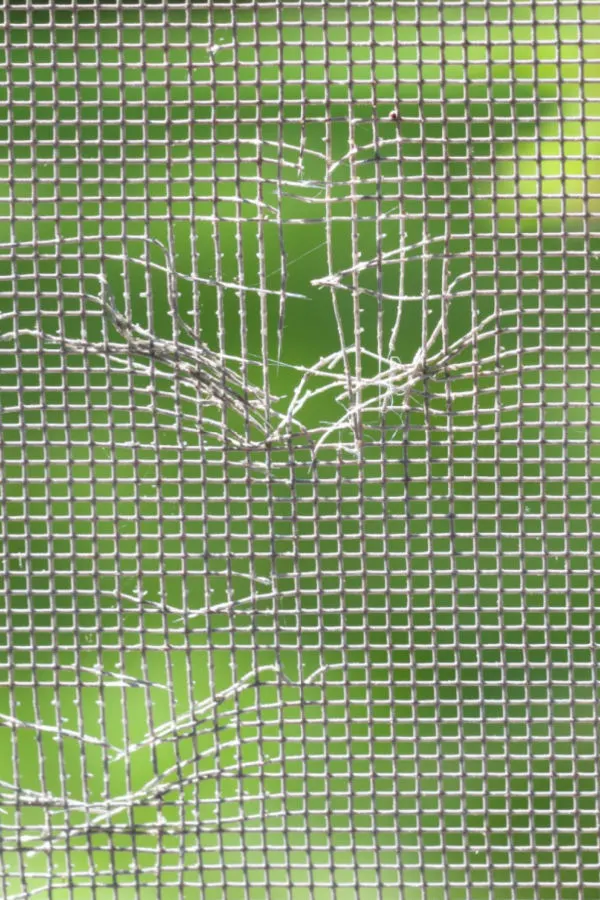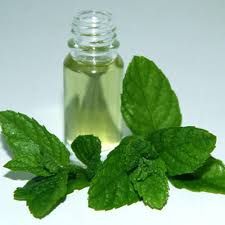Ad Blocker Detected
Our website is made possible by displaying online advertisements to our visitors. Please consider supporting us by disabling your ad blocker.

It’s unpredictable where a spider might seek refuge. While they are inclined towards cool, dark, and damp environments, they’ll find shelter anywhere within a home.
Indeed, autumn is the peak season for spider mating. Following this, they seek out cozy, secure locations to spend the winter with their eggs. Sadly, if they manage to find a pathway into spaces like the garage, basement, or any interior area of the home, they become unwelcome roommates. Alas, this is one houseguest you won’t be able to count as a tax deduction
Stopping Spiders Without Harsh Sprays
For a lot of people, resorting to hiring exterminators or using strong chemicals isn’t a viable choice. Not only can it be costly, but it also raises concerns about the well-being of children, pets, and even adults.
Absolutely! It is indeed possible to keep spiders out of your house using an all-natural approach. By employing a combination of the methods outlined below, which both prevent and repel spiders from entering, you can effectively safeguard your home from a fall spider invasion.
With this in mind, let’s explore some of the top tips and tricks for keeping spiders out of your living space!
How To Keep Spiders Out Of Your House – Naturally!
Seal Screens, Doors & Windows
Above all else, prevention begins with ensuring your house is sealed at the points where spiders are likely to enter. This involves properly sealing windows and doors, and double-checking that all screens are secure and free of any holes.

Small openings in screens, or gaps in door jambs and window trim, serve as convenient entry points for spiders.
Just like stink bugs, flies, and other small insects, spiders can enter through open cracks and crevices. It’s crucial to maintain well-sealed windows and doors and ensure that trim seals are in good condition. Additionally, caulking and sealing off any pipes or foundation cracks where spiders could potentially enter is important.
When you have windows open, make sure that screens are securely in place and tightly sealed all around. If you notice small holes in your screens, consider using screen tape as a more cost-effective and speedy alternative to replacing the entire screen. Product Link: Screen Tape
Peppermint Oil – How To Keep Spiders Out Of Your House
Once your house is properly sealed, you can further deter spiders by using peppermint oil. Spiders are naturally averse to the scent of peppermint. Utilizing all-natural peppermint oil is, in fact, one of the simplest and most effective ways to discourage spiders from making your home their residence.
To make a simple, safe, and potent all-natural spray, mix peppermint oil with water. Add five drops of peppermint oil to each cup of warm water that you’ve gently heated in a pan. Be cautious not to let the water boil, as this may cause some of the essence to evaporate, reducing its potency.
Continue heating the water for five minutes after adding the drops. Then, remove the mixture from heat and allow it to cool. Transfer it into a handheld spray bottle and apply the repellent along window sills, doors, and other entry points where spiders might attempt to enter.

Indeed, spiders tend to steer clear of the scent of peppermint. This is precisely why using pure peppermint essential oil serves as an excellent initial line of defense.
A word of caution: before applying any mixture, even an all-natural one like peppermint oil, always conduct a small test on a discreet area to ensure it is safe for your surface and won’t cause staining or discoloration. To maintain its effectiveness, reapply the spray on a weekly basis.
Creating Peppermint Scent Bags
Another effective method of using peppermint essential oil is to create scented cloth bags and strategically place them around your house. These can be positioned by doors, under cabinets and sinks, and around any cracks and crevices where spiders may try to enter.
Making these bags is simple and requires cotton balls, peppermint oil, and small, inexpensive cloth bags. Just add a few drops of oil onto each cotton ball and then place six to eight of them into the bag.
Product Links:
Just like when making the peppermint spray, be sure to use pure peppermint oil and not a diluted mixture. To maintain the repellent’s effectiveness, spray the bags with the peppermint and water mixture once a week. These bags not only help deter spiders but also leave the area smelling delightful!
Cedar Oil
Cedar oil, known for its effectiveness in combatting Japanese Beetles outdoors, carries the same repelling properties that work against spiders, preventing them from entering your home. Given its versatile repelling capabilities, having a small bottle of cedar oil on hand is always a wise precaution!
To concoct a spider-repelling spray, blend 1.5 tablespoons of cedar oil with every half-gallon of water. Since the oil is already in its purest form, there’s no need to heat the water. Simply mix thoroughly, and you’re prepared to spray doorways, windowsills, cracks, and crevices.
Beyond its efficacy against spiders and Japanese beetles, cedar oil also serves as an excellent deterrent for fruit flies, cockroaches, mice, ants, and mosquitoes! Product Link: Pure Cedar Oil
Cinnamon
Cinnamon is yet another natural ingredient with a wide range of benefits, extending beyond just enhancing the flavor of your dishes. Like peppermint oil and cedar oil, it can also serve as a spider repellent.
You can either sprinkle cinnamon around your home or create a cinnamon spray to apply to pine cones, which can then be placed along the inside base of your house. This not only deters spiders but also leaves your home with a delightful aroma! There’s even a popular old myth that suggests if you sprinkle it in a line across a spider’s point of entry, such as door thresholds, they won’t cross it.

Cinnamon boasts a multitude of beneficial applications both in and out of the kitchen. Beyond its capacity to repel spiders indoors, it also proves effective in dealing with garden insects. The range of uses for cinnamon is indeed quite remarkable!
Indeed, cinnamon can be a reliable deterrent. If you’re interested in learning more about how to use cinnamon outdoors in your gardens and flowerbeds, there are additional strategies to explore.


